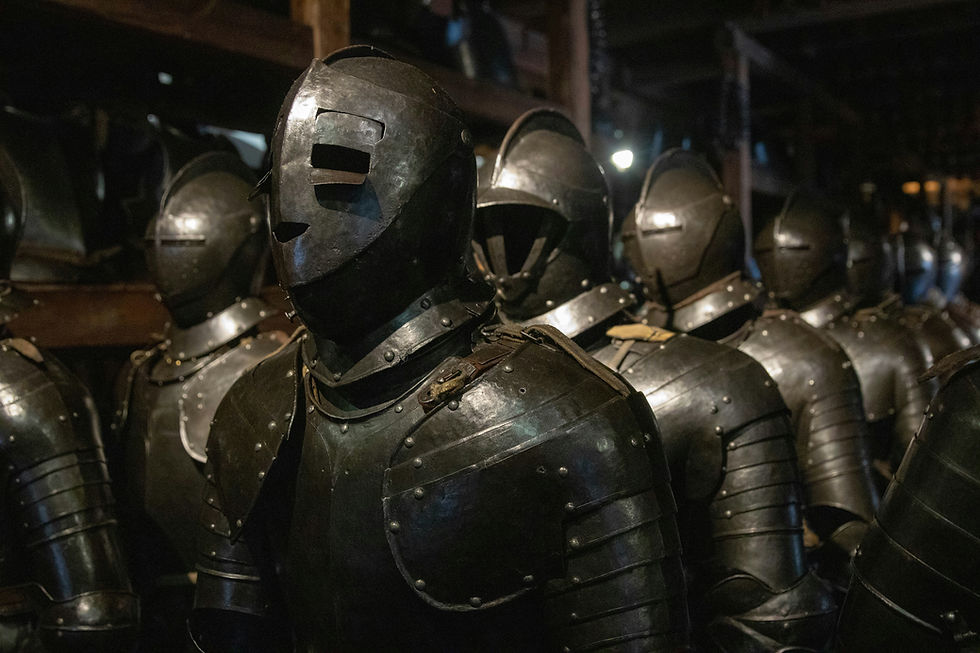My Worst Enemy Is...Me
- Brian Doyle

- Jan 25, 2022
- 3 min read
Everyone seems to be blaming someone for something nowadays. There are whole channels (supposedly news outlets), whether you’re left, right, or somewhere in between that are constantly pointing fingers at “the other guy.” And why? Blaming someone else for what’s wrong in the world is a part of humanity. It’s easy to blame our upbringing, our life situations, our circumstances, our environment, or whatever else we like to blame our behaviors on. It’s been like this pretty much from the beginning. Consider Genesis 3: God asks Adam (who was hiding while wearing fig-leaf underwear), “What have you done?” to which Adam blames both God and his wife as to why he ate the fruit that was forbidden (This woman You gave me), and then Eve blames the snake for deceiving her. Since our fall, it’s become a part of our nature. Yet, if we take an honest, open assessment of the Fall, Adam and Eve were near the tree and had already thought about it (they added to God’s command, which was don’t eat of it; their addition was “don’t even touch it”). They just got that little extra nudge by doubting God’s word. And we’re not much different than our ancestors.
Once we’re convinced that we’re not the bad guy and have someone to blame if things go sour, it’s easy to follow the wrong path. We choose for ourselves champions and when they fall, we blame shift saying “don’t blame me, I was taken in by it.” The fact is, we’re our own worst enemies. Satan (or anyone else for that matter) can’t make us do anything that isn’t already in our hearts to do. The trouble that is brought on us is, at least in part, our own doing. This is why repentance is such an important issue to God. Repentance requires remorse, remorse requires taking responsibilities for one’s actions. In this regard, we’re definitely our own worst enemies. We don’t want to look like the bad guy. We want to, like Adam, blame God and our circumstances, or like Eve, blame those who influenced us. It’s easy to blame. It’s harder to admit fault. Yet if we’re to find any peace in life, accept responsibility we must. When we can turn to the Lord, admit our faults, and give them to Him, He sets us free from the chains we put on ourselves. He has come to set us free from such bondage, and whom the Son sets free is, indeed, free.
John 8:34-38 Jesus answered them, “Truly, truly, I say to you, everyone who practices sin is a slave to sin. The slave does not remain in the house forever; the son remains forever. So if the Son sets you free, you will be free indeed. I know that you are offspring of Abraham; yet you seek to kill me because my word finds no place in you. I speak of what I have seen with my Father, and you do what you have heard from your father.” 2 Corinthians 3:12-18 Since we have such a hope, we are very bold, not like Moses, who would put a veil over his face so that the Israelites might not gaze at the outcome of what was being brought to an end. But their minds were hardened. For to this day, when they read the old covenant, that same veil remains unlifted, because only through Christ is it taken away. Yes, to this day whenever Moses is read a veil lies over their hearts. But when one turns to the Lord, the veil is removed. Now the Lord is the Spirit, and where the Spirit of the Lord is, there is freedom. And we all, with unveiled face, beholding the glory of the Lord, are being transformed into the same image from one degree of glory to another. For this comes from the Lord who is the Spirit.










Comments